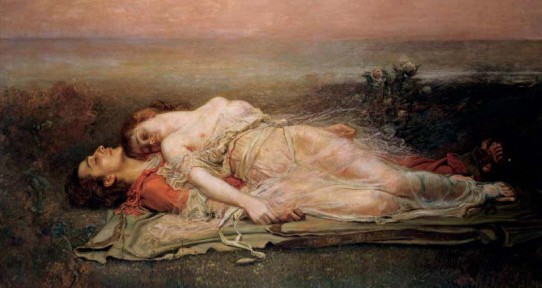Uff, It’s a terrible pounding head-ache. Felt like a herd of hundred elephants at once trampling on my head. Cups of freshly brewed coffee, and green, white, oval, or round caplets and tablets proved themselves totally inefficacious.
It’s been bright and sunny outside; my write up went off smooth and fast; I got even that rare pat from Dennis. Enjoyed a delightful gastronomic luncheon. Overall, it had been a very pleasant day. I couldn’t find a reason for the exploding headache. I was helpless by late evening and had to visit my Doctor. He let me in, though far out off his Consultation hours.
The Doctor lifted his head out of the piles of Advaita books around him, the light from the table lamp throwing an eerie arc of illumination on his face. The soft light from the computer screen added a strange greenish glow-effect to his broad smiling face welcoming me into his otherwise dimly lit drawing room. I felt that I was seeing the grin of a live Cheshire Cat rather than a welcome from my Doctor friend.
The Doc heard my story of agony and suitably tutt-tutted.
And suddenly his Advaitic genius sprang out. He declared, Oracle-like, that there should be a ‘head’ to have a headache. And he convincingly argued that I had no head. Yes, Did I ever see it? No, never. Even if my hands touched it, could the hands know what they touched? No, never. It was I who imagined what it was that was touched by the hands and gave a name to the resulting sensation as ‘head.’ Meekly succumbing to his invincible logic, I lifted my head a little when I saw myself in the window glass on the opposite side. I shouted in joy to prove to him that I had, after all, a head that was begging for a cure. But no, he didn’t relent.
“Mirrors can lie,” he said, “Don’t believe the reflection. A glass can show things even if the things are not there.” To prove his point, he quickly linked on his computer to the 1 min Video clip of his fellow Psychologist here. Yes, the mirror showed a banana, even when there was none!
In utter bewilderment, I asked submissively, “Who is this that thinks I am and what is this pain?” The Doctor declared triumphantly, “It’s only ‘Pain’ that is there. No separate ‘you’ anywhere.”
“Do you mean there is nothing of my personality, my prestige, my ego, my….. …..”
“You see, you are appearing as the ‘Pain’ at this moment.”
“So, you mean to say that I am present in the now as the ‘Pain’ on my neck?!”
 Q: I have tried several spiritual paths and I was always stopped in my search by this question: How do we explain suffering?. Why does all pervading, partless, actionless Consciousness create, allow, dream of Auschwitz? Surely Consciousness could do better than this?
Q: I have tried several spiritual paths and I was always stopped in my search by this question: How do we explain suffering?. Why does all pervading, partless, actionless Consciousness create, allow, dream of Auschwitz? Surely Consciousness could do better than this?
